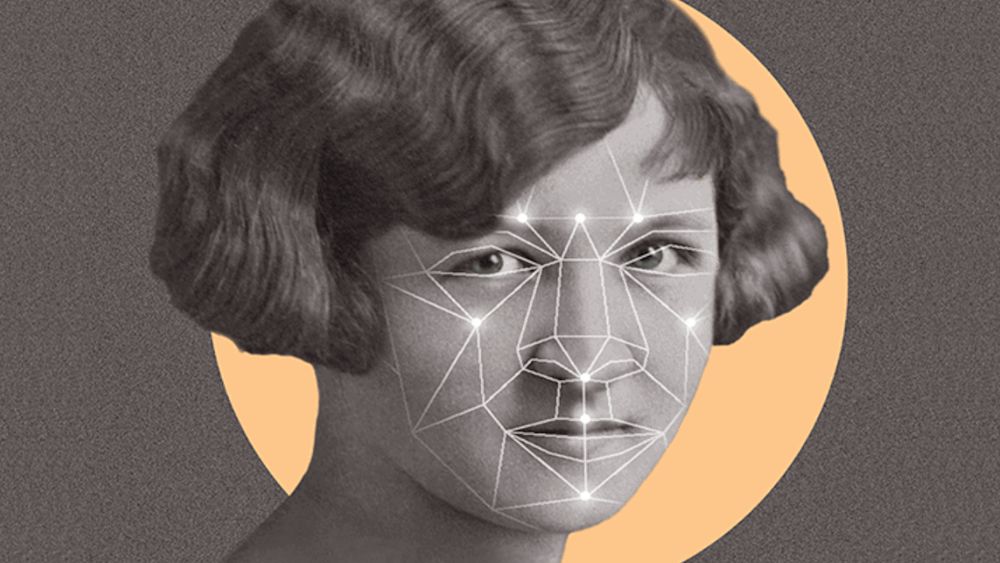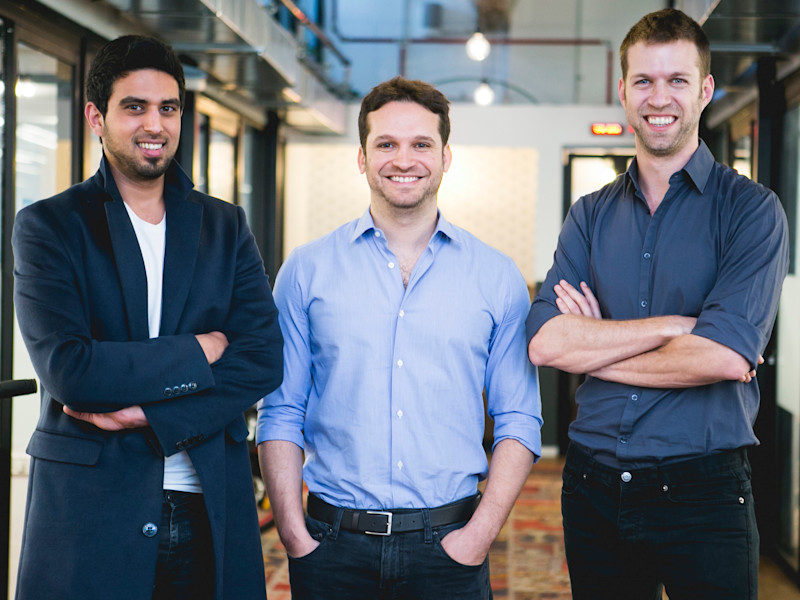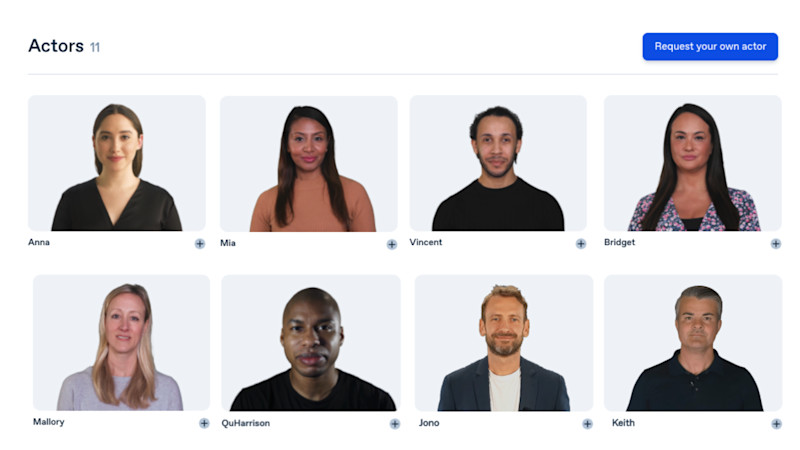- Iterate
- Meet The Team
- Why Team Building is Vital for Synthetic Media Companies and the Future of Deepfakes
Why Team Building is Vital for Synthetic Media Companies and the Future of Deepfakes
The technology is here. So too are the bad actors. And companies building in the synthetic media space are so acutely aware of this dynamic that it is actively shaping how they grow their teams.

About a decade ago, a former Commander in the Special Forces unit of the Israeli Defense Forces named Gil Perry decided to travel with a friend he’d met in the IDF, Sella Blondheim. The two spent nine months in Central and South America, relaxing and shucking off the weight of their long military careers. It was an incredible trip, one of the best of Perry’s life, but the experience also came with a life-altering realization. When it came time to share these adventures with their friends, Perry and Blondheim concluded that because of what they knew about facial recognition technology and what governments and organizations could do with public photographs, they couldn’t upload their photos to social media.
The experience made them think long and hard about the future of facial recognition, AI, and image/video manipulation. In the wrong hands, these technologies had enough power to carry an enormous risk to the public. It was only a matter of time, in some ways, before bad actors started to adopt this tech.
So in 2017, Perry, the CEO, Blondheim, COO, and Eliran Kuta, CTO, co-founded Tel Aviv-based D-ID. Started as a tool to make photos and videos unrecognizable to face recognition algorithms while keeping them similar to the human eye, D-ID was launched to protect privacy without influencing usability. The company has raised almost $23M, including a $13.5M Series A round in 2020, and has been in the news recently for bringing this technology to the public in a positive way. In March, genealogy platform MyHeritage released a tool called Deep Nostalgia that allows users to animate old family photos using D-ID’s Live Portrait product. Suddenly, like something out of Harry Potter, old photos of grandparents and relatives sprung to life. Several posts of people seeing realistic animations of their long-lost family members made the front page of Reddit. Within two weeks, users made more than 40M of these animations, and the MyHeritage app became the most-downloaded free app in the U.S.
However, even with their recent success, Perry and Blondheim’s instincts over digital manipulation have proven to be correct. Incredibly realistic but fake videos, known as deepfakes, are becoming more mainstream - a deepfake Tom Cruise TikTok account has close to 900k followers - while companies like Clearview AI have developed powerful facial recognition platforms by scraping several billion public images and selling them to law enforcement agencies, social media companies, or seemingly anyone interested in identifying and tracking people.
The technology is here. So too are the bad actors. And companies building in the synthetic media space like D-ID are so acutely aware of this dynamic that it is actively shaping how they grow their teams. For example, most of the deep learning experts at D-ID are former members of Unit 8200, a signal intelligence wing of the IDF considered one of the most powerful technical intelligence agencies in the world, while board members include people like Richard Purcell, a former Chief Privacy Officer at Microsoft.
“The company has been built through our personalities, what we have been through and how we actually know each other,” Perry said in an interview with The Org. “D-ID is us. We’ve looked for a combination of talented people with good hearts, who are willing to not sleep and walk the walk of our mission, who can have fun together and build amazing, important things.”

There are other interesting, non-harmful avenues for synthetic media. London-based Synthesia allows companies to make business videos with nothing but an internet connection. Users just have to type in whatever they want to communicate and the software turns it into a realistic video of a talking avatar. Long HR manuals or corporate emails suddenly become short, personal instructional videos, which has a lot of obvious benefits. Human beings are much more likely to retain information from watching what looks like another person speak than by reading a 10 page document.
Long term, a platform for digestible, easy-to-make content would revolutionize both internal and external corporate communications. It’s hard to see a downside of that. However, also consider that Synthesia worked with non-profit Malaria No More to raise awareness for malaria eradication by making a synthetic video of David Beckham speaking in nine different languages. It’s incredibly realistic and, frankly, pretty cool. And yet, it's quite easy to see a downside for a video like this. In the wrong hands, the software could manipulate the Beckham avatar to say a number of things that have nothing to do with malaria prevention.
This is both the challenge and the opportunity for Synthesia, which says it has thousands of customers and is in talks of a Series A (they’ve raised more than $4M in seed money, including investments from Mark Cuban). It’s why CEO and co-founder Victor Riparbelli talks so passionately about the future of his company, and is also why the company has an ethics page on its site about the responsible use of synthetic media. The first rule? People first, always.
“Any technology that’s democratized and made available to more people, of course will also be used for bad. There's no doubt about that, and we have to do everything we can to stop the harmful use of these technologies,” Riparbelli said. “But cars are used by criminals, smartphones are used by criminals, Bitcoin is used by criminals. When I saw this technology for the first time, I was very aware of that fact.
“There’s a story arc of new technology that’s played out in my lifetime a few times before - it pops up, it's very powerful, people are very afraid, it's a threat, and it's the end of everything as we know it. Then 10 years pass and yes, people have used it for bad, but we also now have much more interesting lives and products. And I think synthetic media perfectly follows this story arc.”

The future of this technology is still really up in the air. No one expected that social media companies giving anyone the ability to broadcast live video would lead to streaming video game content and $15B businesses like Twitch. Developed by the right people, deepfake videos could lead to a total disruption of media. Full-length movies could be developed at home at a fraction of the cost of Hollywood, much like what happened in audio and song production over the last decade. The one thing we know is that team building, and positions like AI Ethics Officer, will continue to be massively important to the success of how this relatively nascent technology continues to enter mainstream markets.
"When we started, we realized two things," D-ID CEO Perry said. "The first is that AI and synthetic videos will enable creative people to do things they couldn’t do before in cheaper and faster ways, which means this industry will become one of the leading players in the media and entertainment market. The second thing, basically why we wake up every day and work so hard and have our own principles and values, is that we saw D-ID as a leader in this market that could work with investors.
"That means using this tech for good, but more than that, it's also helping to shape this landscape and to direct others on how to use this for good."
--
The Org is a professional community where transparent companies can show off their team to the world. Join your company here to add yourself to the org chart!
In this article


The ORG helps
you hire great
candidates
Free to use – try today